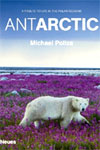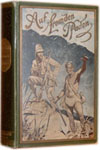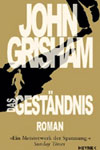[BOUND COLLECTION OF MANUSCRIPT MUSIC TRANSCRIBED AND COMPOSED BY OLIVER SHAW AND HIS PUPIL, JULIA HAZARD, INCLUDING AN EARLY VERSION OF "THE STAR-SPANGLED BANNER" AND MANY OTHER COMPOSITIONS ON AMERICAN POLITICAL AND HISTORICAL THEMES]
[Shaw, Oliver]: [Hazard, Julia]
Verkäufer
William Reese Company - Americana, New Haven, CT, USA
Verkäuferbewertung 3 von 5 Sternen
![]()
AbeBooks-Verkäufer seit 13. Juli 2006
Beschreibung
Beschreibung:
[256]pp. More than 160 distinct compositions. Quarto. Half burgundy morocco with gilt burgundy label ("Julia S.M. Hazard") on front board. Boards heavily worn, corners bumped, some loss of spine leather, text block mostly detached and loose. Pages trimmed with only a few minor losses to text. A few pages with chipping at edge, some light tanning, a few fingerprints, and some bleedthrough from ink, but internally very good over all. In a cloth chemise and half morocco and cloth clamshell case, spine gilt. A remarkable collection of manuscript music, including transcriptions, arrangements, and compositions from the hands of both noted composer Oliver Shaw and his student, Julia Hazard. Oliver Shaw was the first prominent American composer and songwriter, and Julia Hazard - child of a noted Rhode Island political family - was only in her mid-teenage years when she began to create this volume. This collection of manuscript music is an important record of early music education in the United States, of the achievements of a talented young female musician, and of the interpretation of popular American songs of the day. In all, there are more than 160 distinct manuscript musical works in this volume, several with political or historical themes. Some pieces are excerpts, but many are complete compositions, often with lyrics and occasional notes on performance. Most of the pieces date to the 1820s and 1830s, though one is dated as late as 1850. One of the most interesting pieces is a very early rendition of "The Star-Spangled Banner" in Julia Hazard's hand. Francis Scott Key wrote the poem, "The Defense of Fort McHenry," in 1814, only seven years earlier during the War of 1812; it was an instant hit as a poem and was immediately retitled "The Star-Spangled Banner." It was soon associated with the music we now know, "To Anacreon in Heaven," and this may have been due to some influence from Key, who had used the music in 1805 to accompany another poem he wrote to honor Commodore Stephen Decatur (the music was very popular at the time). "The Star-Spangled Banner" did not become the national anthem until 1931; before this, it was one of several popular patriotic songs, along with "Hail, Columbia"; "My Country, 'Tis of Thee"; and finally "America the Beautiful," which had also been considered for the national anthem. Nevertheless, people throughout the 19th century appropriated the music and the text of "The Star-Spangled Banner" for their own ends, including abolitionists: "Oh, say do you hear, at the dawn's early light, The shrieks of those bondmen, whose blood is now streaming"; and temperance activists: "Oh! who has not seen by the dawn's early light, Some poor bloated drunkard to his home weakly reeling" (as noted by Robin). Julia Hazard clearly felt free to take extensive liberties with the music of "The Star-Spangled Banner" - only occasional strains are recognizable. She also made some changes to the poem, repeating "O'er the ramparts we watch'd where [sic] so gallantly streaming." (substituting "where" for "were" - a possible misspelling), and repeating the final line, "O'er the land of the free and the home of the brave." Hazard includes the second verse with no alterations. Many other patriotic compositions are present, including "General Washington's March"; a short and slightly different "Yankee Doodle"; "A New Ode Sung at the Celebration of the Anniversary of American Independence. Boston, July 4th 1802"; John George Henry Jay's "Jefferson's March"; "Bristol March - Jefferson and Liberty"; "Hull's March"; and a composition dated 1850 called "Field of Monterey," showing that even after Oliver Shaw's death in 1848, Julia Hazard continued to work on her musicianship. Oliver Shaw's compositions "Governor Jones' [of Rhode Island] March" and "Bristol March" are included, but perhaps the most important work here is "A Military Divertimento.Dedicated to Genl. La Fayette on his visit to Providence" (published by Shaw as WELCOME THE NATI. Bestandsnummer des Verkäufers WRCAM55384
Bibliografische Details
Titel: [BOUND COLLECTION OF MANUSCRIPT MUSIC ...
Verlag: [Newport, R.I.
Erscheinungsdatum: 1850
AbeBooks ist ein Internet-Marktplatz für neue, gebrauchte, antiquarische und vergriffene Bücher. Bei uns finden Sie Tausende professioneller Buchhändler weltweit und Millionen Bücher. Einkaufen bei AbeBooks ist einfach und zu 100% sicher — Suchen Sie nach Ihrem Buch, erwerben Sie es über unsere sichere Kaufabwicklung und erhalten Sie Ihr Buch direkt vom Händler.
Millionen neuer und gebrauchter Bücher bei tausenden Anbietern
Neue und gebrauchte Bücher
Neue und gebrauchte Exemplare von Neuerscheinungen, Bestsellern und preisgekrönten Büchern. Eine riesige Auswahl an günstigen Büchern.
Antiquarische Bücher
Von seltenen Erstausgaben bis hin zu begehrten signierten Ausgaben ? bei AbeBooks finden Sie eine große Anzahl seltener, wertvoller Bücher und Sammlerstücke.
Versandkostenfreie Bücher
Hier finden Sie viele hunderttausend neue, gebrauchte und antiquarische Bücher, die Ihnen unsere deutschen und internationalen Händler versandkostenfrei liefern.



